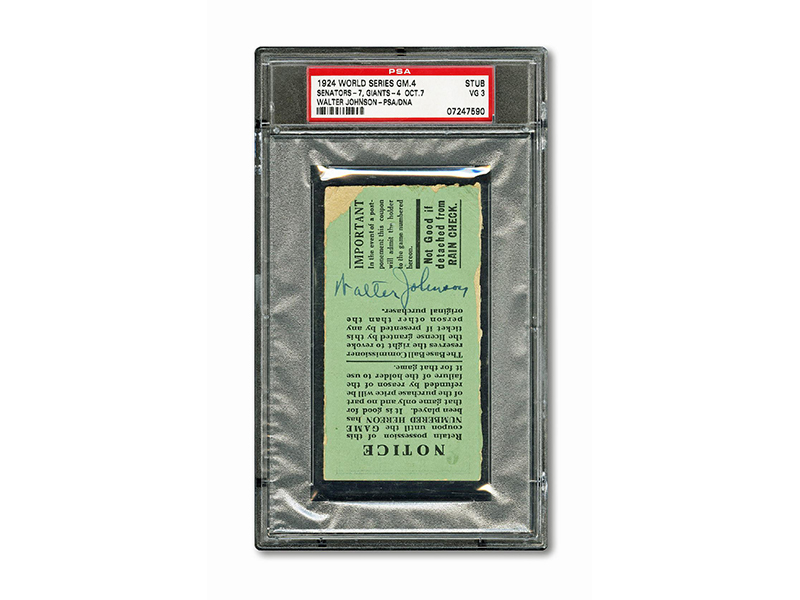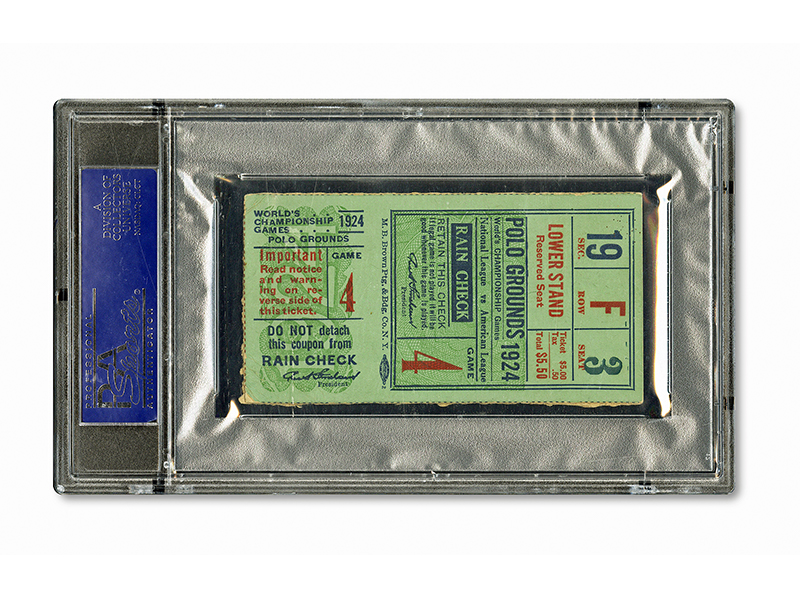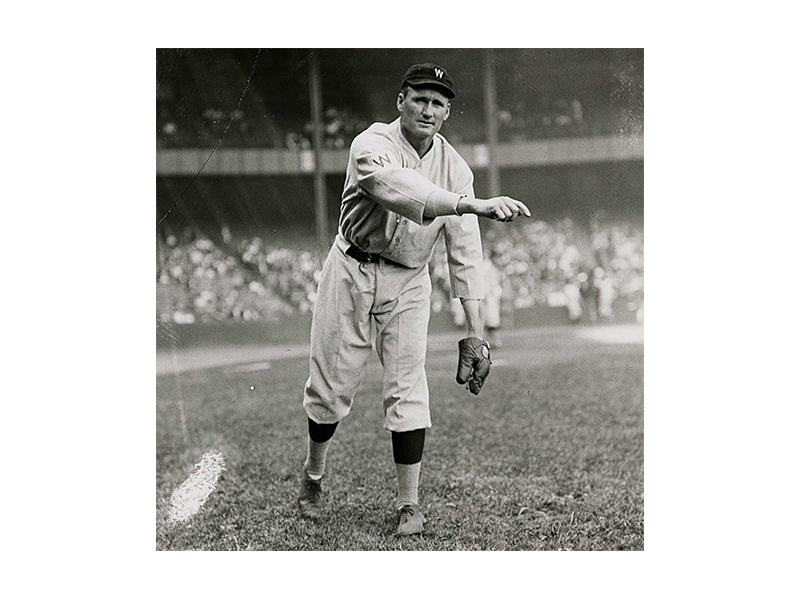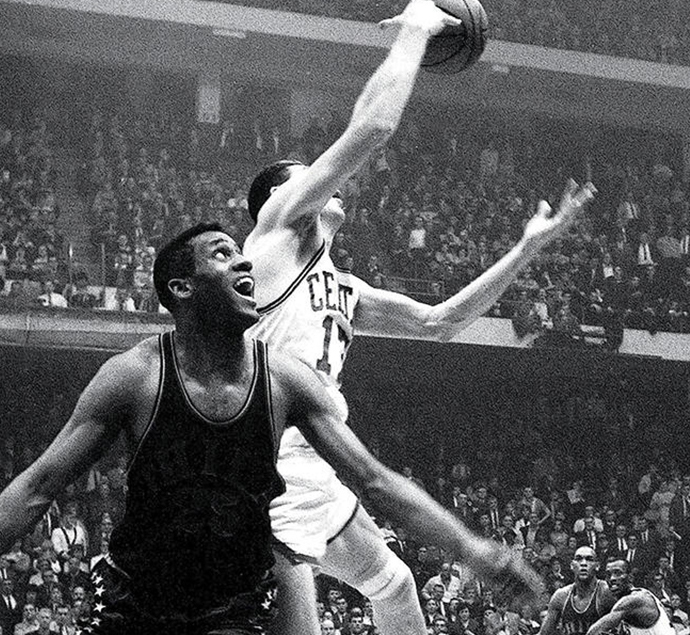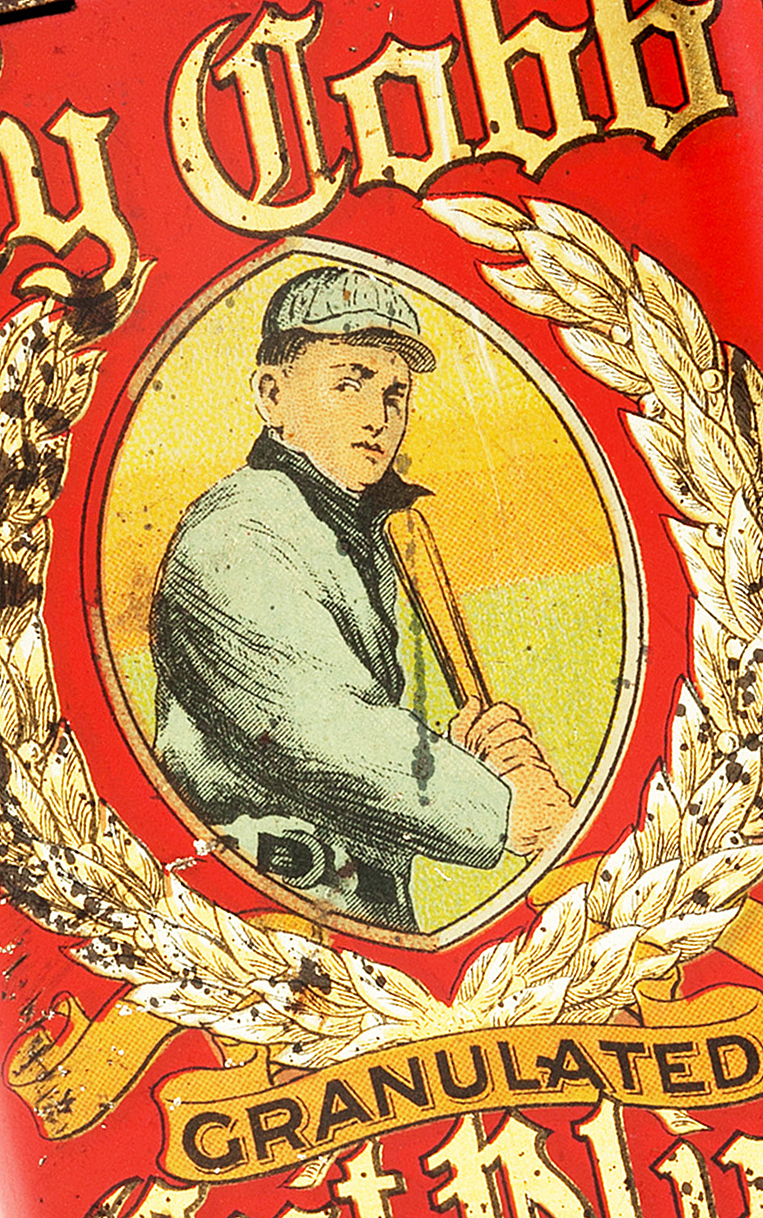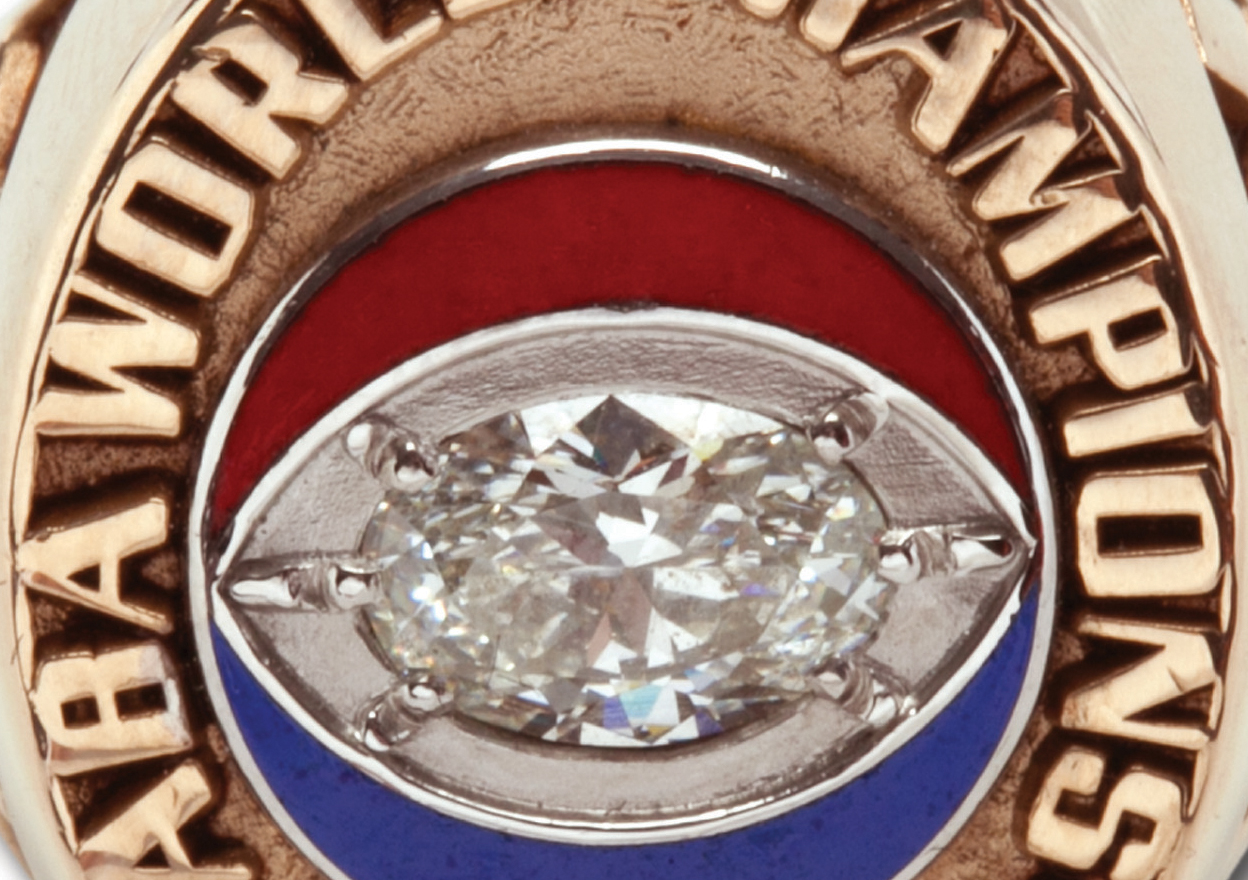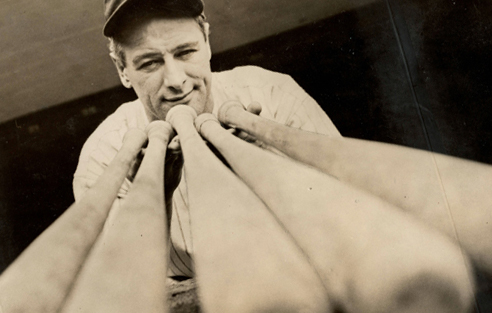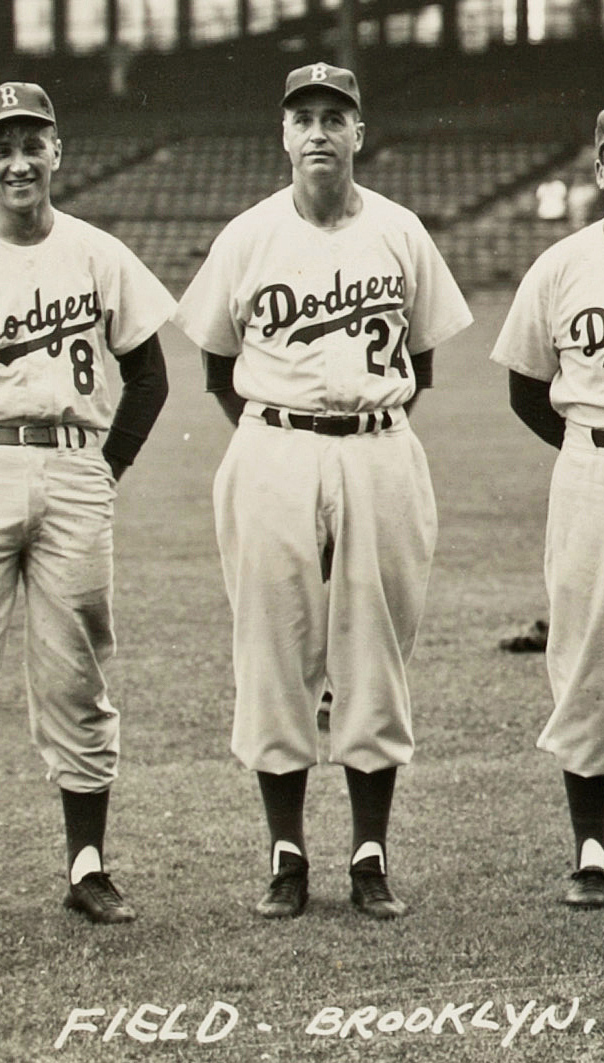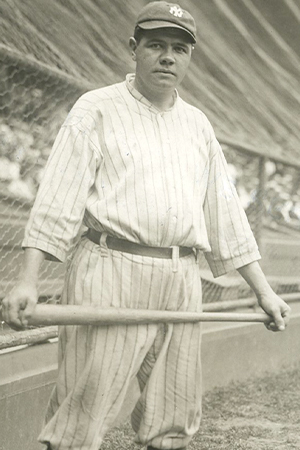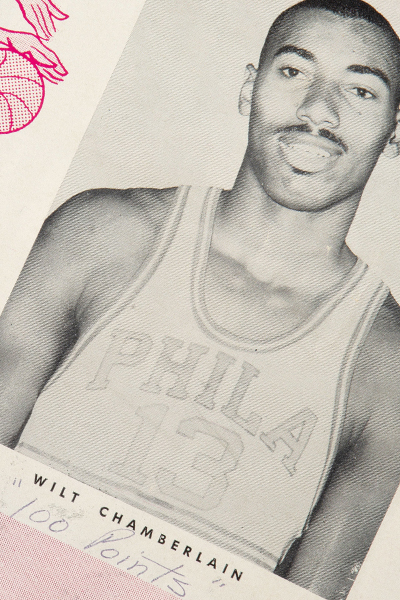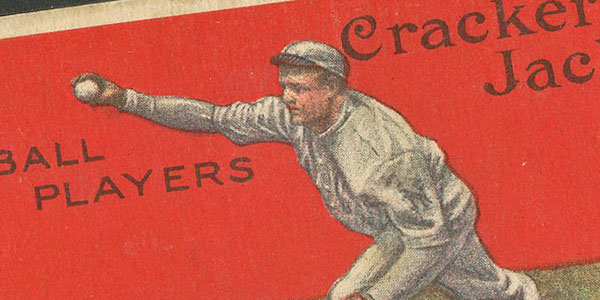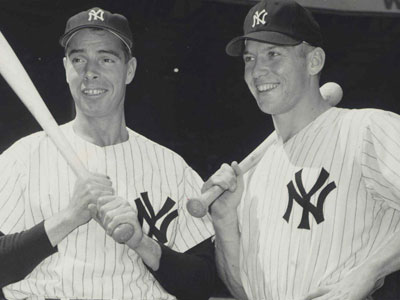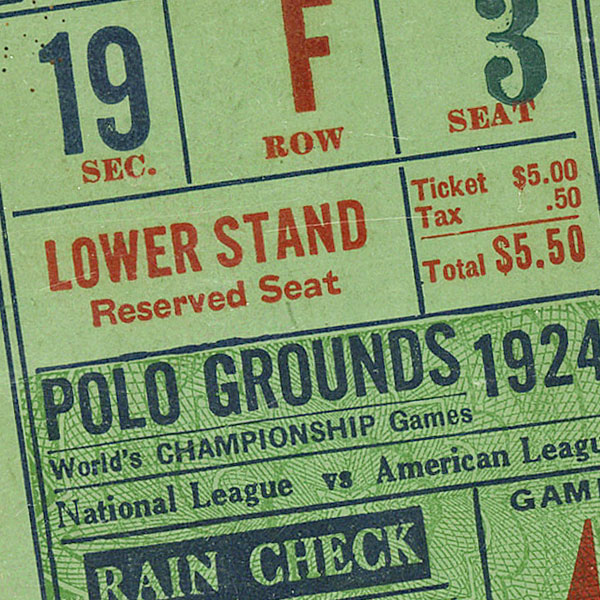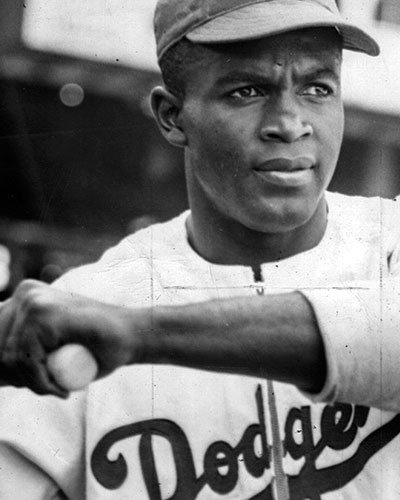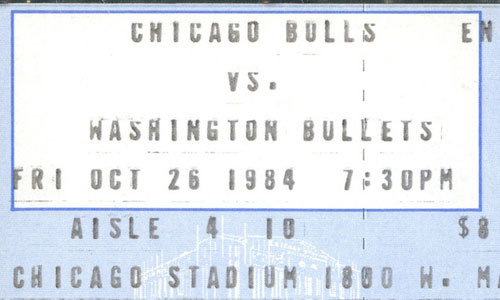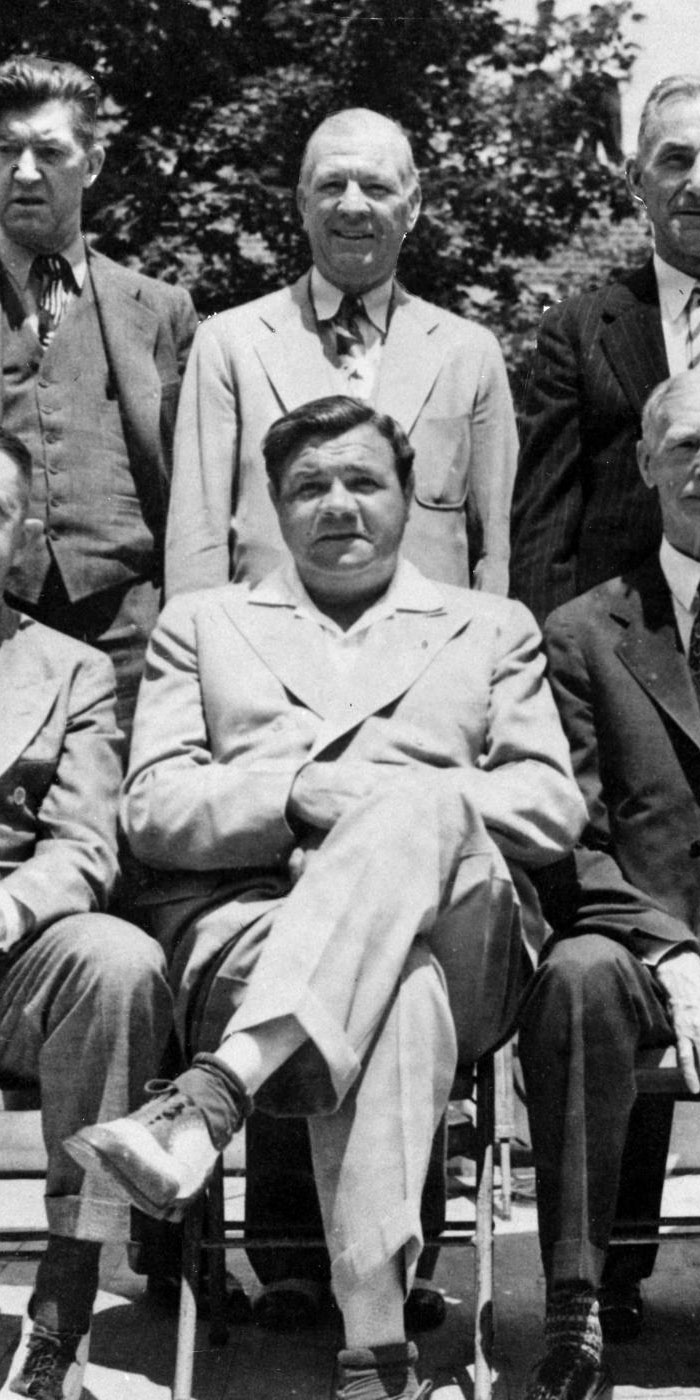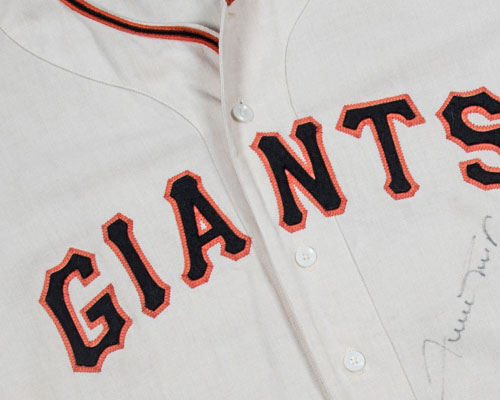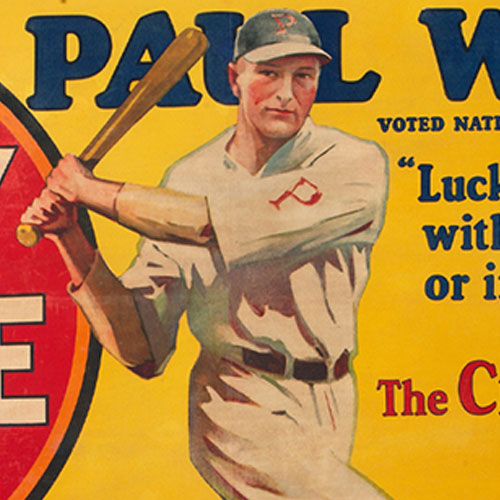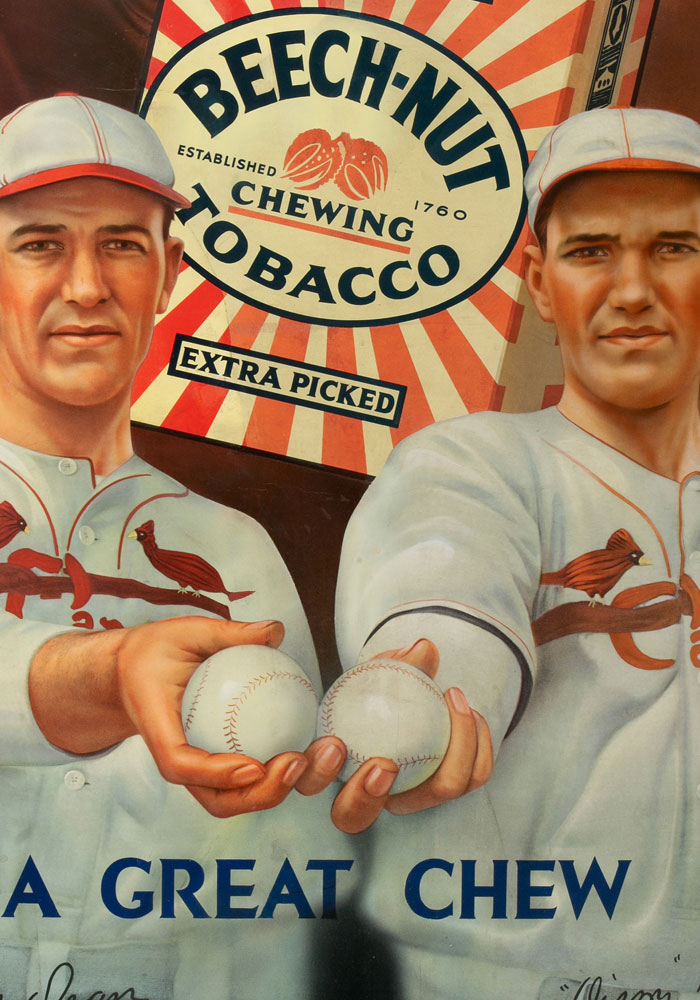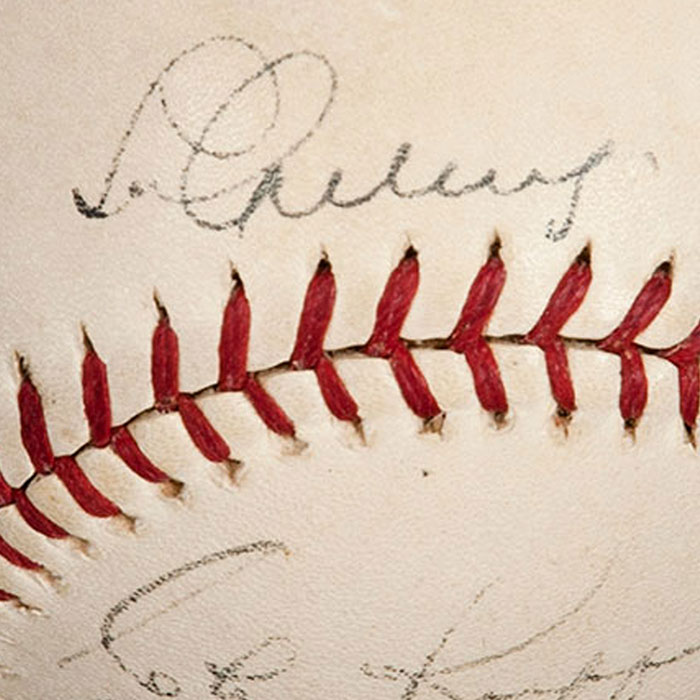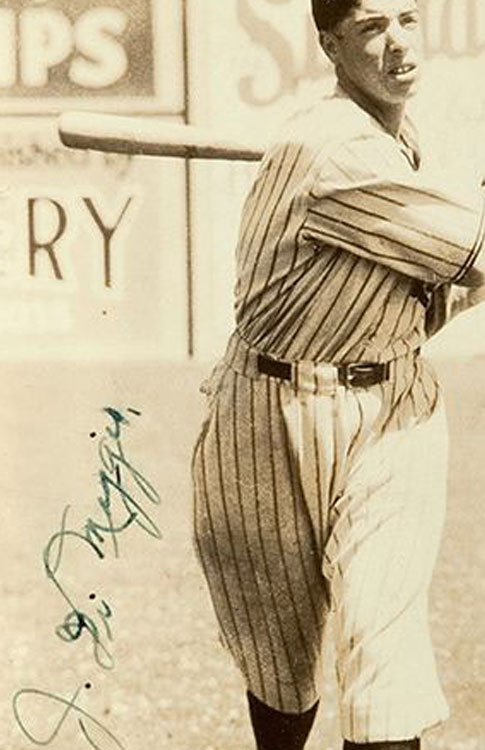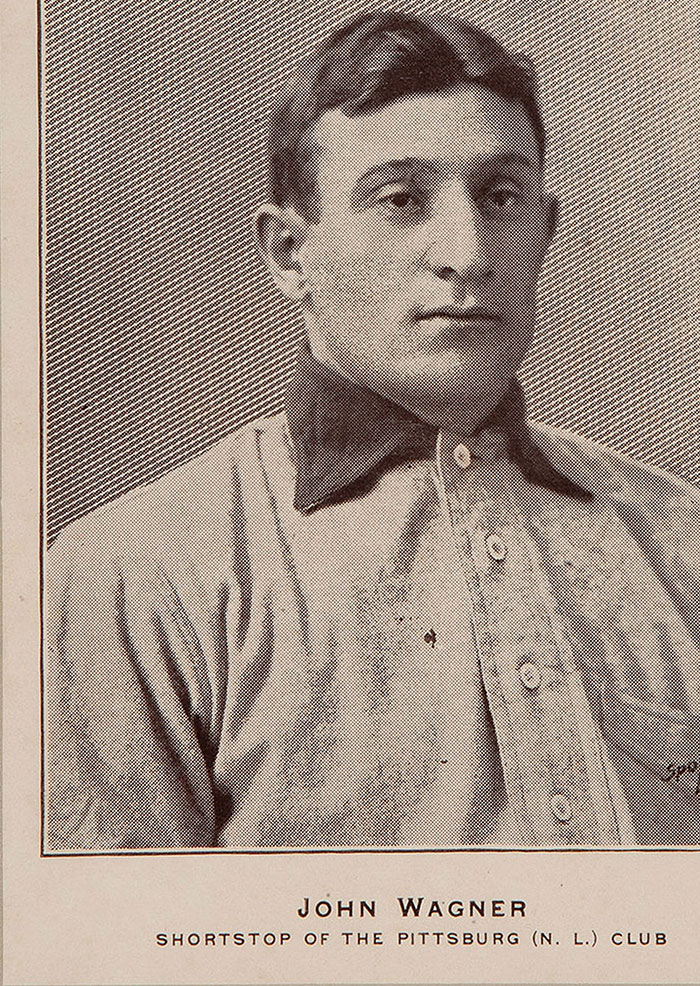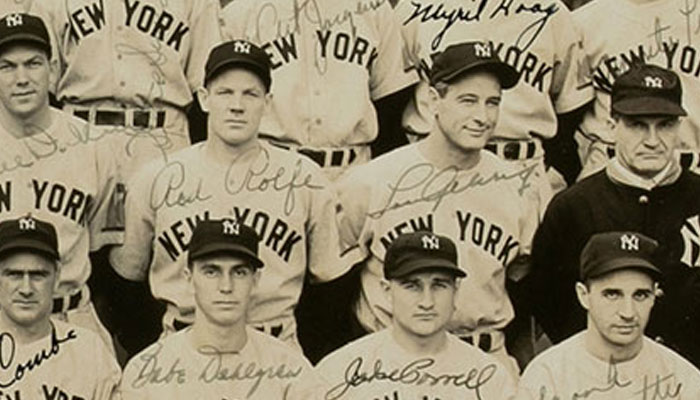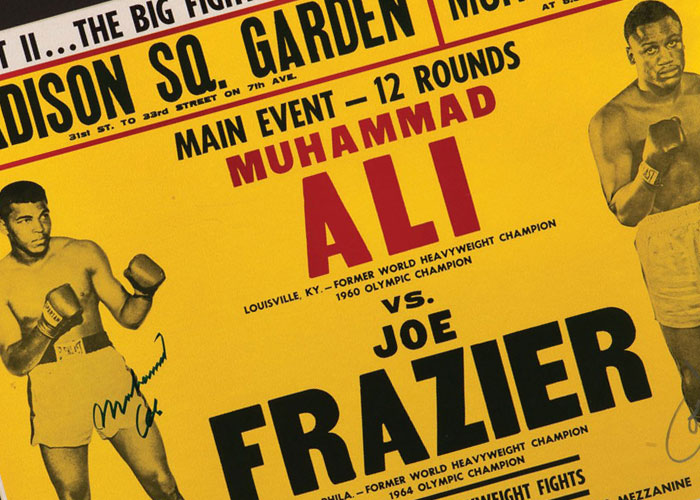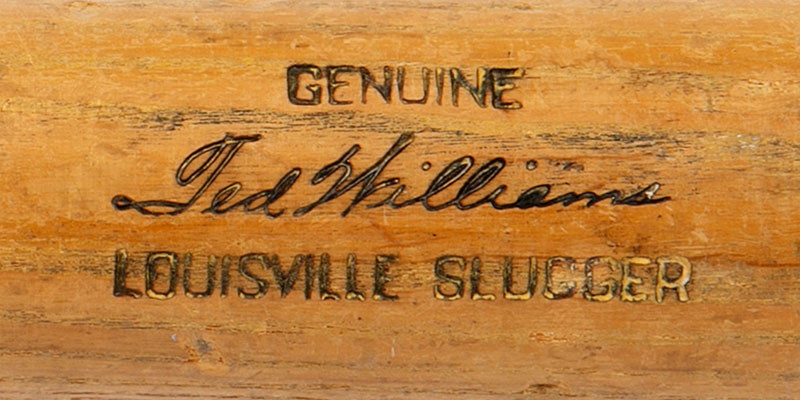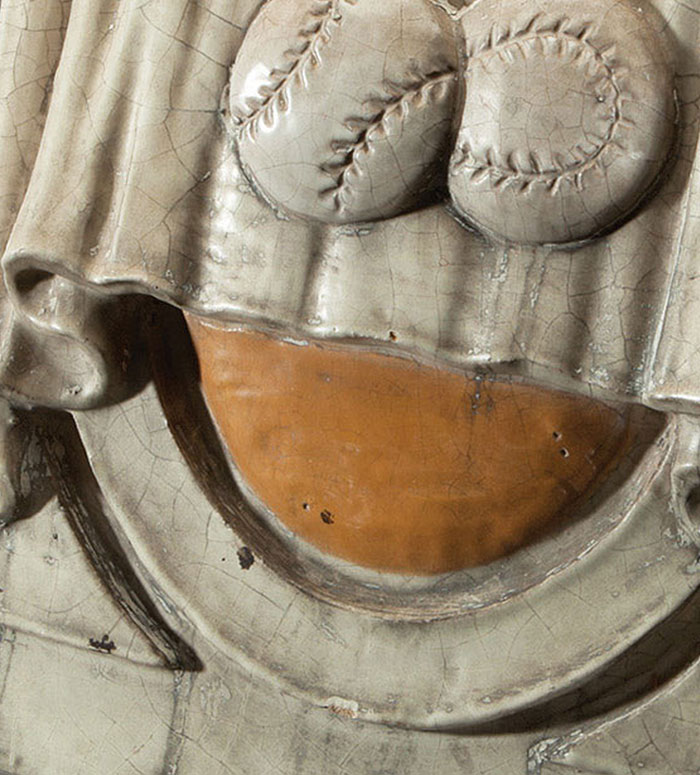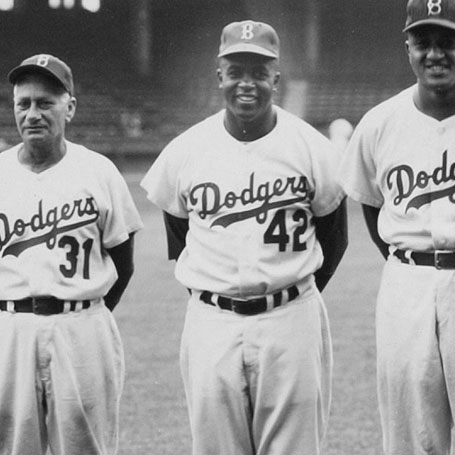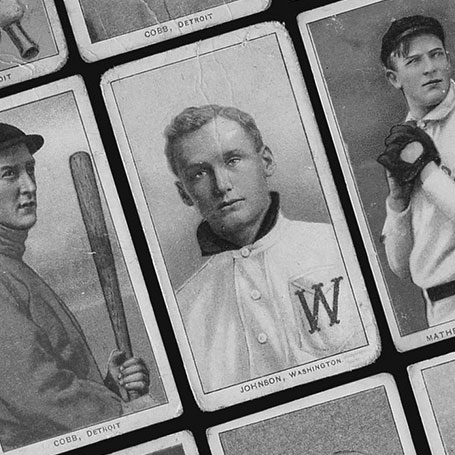Walter Johnson Autographed 1924 World Series Game 4 Ticket Stub
Before the 1924 season, Walter Johnson announced that he would be winding down after seventeen years as the major league's premier pitcher. At age 37 "The Big Train's" engine was finally slowing. Despite routinely winning more than 20 games and leading the league in strikeouts and ERA throughout his career the "Nats" could only manage to win 90 games twice and only twice finished within 10 games of the pennant. In 1923, under manager Donie Bush, the Nats couldn't even break .500, going 75-78 despite Johnson’s 17-12 record. So, no one, least of all Washington's long-suffering fans, thought that the Senators could even compete for the 1924 American League pennant - particularly with Ruth’s defending champion Yankees and Cobb's Detroit Tigers playing tough ball. However, Nats owner Clark Griffith named 28-year old second baseman Bucky Harris as the fourth Senators manager in four years. "I liked his cockiness," Griffith said. "He told me he thought he knew as much baseball 'as that old buzzard (John) McGraw,' even if it was his first year as a manager." Infused by Harris’ confidence and Johnson's turn-back-time season where he once again won the pitcher's Triple Crown, the Senators found themselves still in the race in September of 1924. Shocking all of baseball, the Nats then swept the Yanks in a late season series to win their first ever pennant by two games, with a 92-62 record.
Posting a 23-7 record, Johnson was unquestionably the year's most dominant pitcher. He was also the sentimental favorite entering the World Series prompting Will Rogers to devote an entire newspaper column to the Nation's love affair with the "Big Train", simply entitled "Everyone's Pulling for Walter." However, it appeared that fate would deliver a cruel blow to the hopes of millions when McGraw's Giants, winners of four straight pennants and two World Series, sent Johnson down to defeat in his first two Series starts. But the Washington club fought back to tie the series, setting the stage for a seventh and deciding game on October 10, 1924. President Coolidge was among a packed house of 31,000 that would see one of the greatest games in baseball history.
In a dramatic twist no novelist would ever dare try to put over, the final game went into the ninth inning tied and the Senators were out of available pitchers. The tense crowd roared in disbelief upon seeing Johnson, their greatest star for two decades, stroll to the mound. The "Big Train" promptly revved up his engines and held the Giants powerful lineup in check for four nerve wracking innings. Finally, in the bottom of the 12th, Nats catcher Muddy Ruel slapped a single with one out. Up next, Johnson himself hit a single as well. With runners on first and second Senators rookie Earl McNeeley (who has batted .330 in 43 regular season games) stepped up to the plate. McNeely hit a grounder that caromed off a pebble right over the leaping arms of third baseman Freddie Lindstrom and into left field. Ruel, the Nats slowest runner, somehow lumbered around third and scored the winning run. Washington won their one and only World Series. Even Walter Johnson could not contain himself, failing to hold back tears on the field amidst the celebration that ensued. The following day the Nats were greeted with a hero's parade down Pennsylvania Avenue to the White House where they were hailed by President Coolidge and 100,000 ecstatic fans.
Sometime after Washington’s victory in Game 4, Walter Johnson signed the back of this lower reserved stand ticket. The ticket itself is in very good condition, with the blue and red ink strong against the green cardstock. The edges are rough from use with the expected slight paper loss around the perforations. There are some dings to the corners, but these do not detract from both the ticket graphics and Walter Johnson’s elegant blue signature on the reverse. The stub has been encapsulated and graded a VG 3 by PSA. A tremendous artifact from the 1924 World Series, and a poignant commemoration of what was undeniably Walter Johnson’s definitive achievement in a career rich with monumental milestones.
